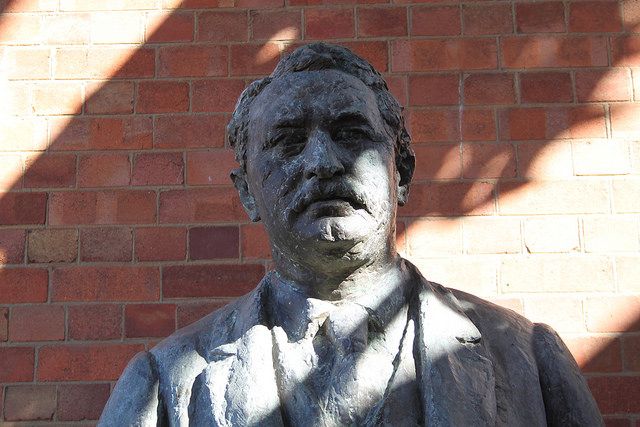
Recently, students from the University of Oxford called for the removal of a statue of Cecil Rhodes from Oriel College. The movement, which started in Cape Town, gained traction on university campuses around the world and in the media. For awhile, #RhodesMustFall was trending on Twitter and all major British newspapers covered the issue. Campaigners argued that the likeness of an ardent imperialist who believed in the superiority of the Anglo-Saxon race – indeed, one of the architects of the apartheid itself – was a deeply inappropriate fixture within the College and Oxford, and reflected serious problems about diversity, the legacy of colonialism and the representation of black and other non-white minorities.
By a narrow majority, members of the student union voted for the statue’s removal. However, Oriel College recently announced that after a consultation process with alumni, academics, students and heritage bodies indicated overwhelming support for the statue to remain, the statue would remain. The College acknowledged that £100 million in expected gifts would be compromised, should it have decided to remove the statue – although the public has been told (and is presumably expected to believe) that this was not a “primary consideration” in its decision.

Oxford – Oriel College. Tejvan Pettinger/Flickr.
Around the world, similar conversations are being held about the awkward and continued presence of imperialism and colonialism. At the University of Melbourne, students are agitating for the removal of tributes to racist professors such as the Richard Berry building, named for a scientist who lobbied for the sterilisation and “extermination” of Aboriginal people, and others deemed to have a “rotten heredity” (including gay people, and the poor).
There certainly appears to be a North-South divide to this issue. We would not, for example, ever countenance asking a Jewish person to study under the gaze of a statue of Adolf Hitler. An analogy between Rhodes, other imperialists and Hitler is highly contestable or even hyperbolic – but all are spectres of ugly nationalism and unadulterated disregard for the moral worth of human being based on race. And, while we roundly condemn Hitler for the atrocities committed in the Second World War, we are more ambivalent about the horrors perpetrated by colonisation – perhaps because we continue to be the direct beneficiaries.
Facing these unanticipated consequences of imperialism is uncomfortable, to say the least. For the most part, the beneficiaries rather than the colonisers themselves are left to deal with these questions of what is just. But what is the impact of removing these statues and these names?
Ultimately if Rhodes falls and if Richard Berry’s name is scrubbed from existence, we are in danger of whitewashing history. Not only do we continue to benefit from the spoils of colonisation, but others continue to be gravely disadvantaged by the legacy of the cruelty and abuse that occurred, and the intergenerational harms that persist to this day.
We need only look to the continued health and life expectancy gap between non-Indigenous Australians and Aboriginal and Torres Strait Islander peoples, and the other deep measures of inequality that exist in former colonies (and that reduce the price of our clothing and coffee), to realise that its impact is still felt by all.
It has already been decided that Cecil Rhodes must stand, but his true and full legacy should stand with him. His history, and the histories of his imperialist comrades who are elsewhere emblazoned, should be writ large in a historical plaque next to their names and likenesses. So too must the history of colonialism become an important part of school curriculums.
We should not ever forget to whom we are most indebted, as the current beneficiaries of the continued legacy of colonialism, and to where our energies should turn to ensure that it never happens again.


